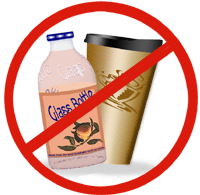
 |
Staff and UsersUsers The users of a library include scholars, teachers, students, undergraduates,
postgraduates, researchers, teaching assistants, corporate users, foreign students,
staff, schoolchildren, the public, and individuals from other institutions.
An important message for users that should be embedded in training is that
individuals can ruin materials and reduce access for others. The continuing
accessibility of the collections is a group effort to which everyone should
contribute. The users of a library include scholars, teachers, students, undergraduates,
postgraduates, researchers, teaching assistants, corporate users, foreign students,
staff, schoolchildren, the public, and individuals from other institutions.
An important message for users that should be embedded in training is that
individuals can ruin materials and reduce access for others. The continuing
accessibility of the collections is a group effort to which everyone should
contribute.
Various posters dealing with the care and handling of books as well as food and drink can be found at:
The following websites offer suggestions for bookmarks:
Videos are a useful way to get the message across at public presentations, lectures, and school gatherings. Examples of these can be found at Northwestern University Library and Smith College Libraries. Teaching children the value of handling library materials carefully can pay off in the future. School librarians have a vital role to play in this regard. Allowing children to make book covers, posters, bookmarks, and paper will help them appreciate books while giving them an opportunity for creative expression.
Food and drink pose dangers to the collection and can be noisy. In recent years, some libraries have installed refreshment areas, usually in the lobby. These areas can become congested and noisy. While profitable, they can create a negative impression and give the wrong message to users. StaffPreservation professionals should be aggressive advocates for their collections. Maintaining a circulating collection is only a part of the preservation job. There are some simple steps that staff can take to help users understand the need for care. For example, supplying plastic bags to patrons for carrying books in the rain can both protect the collection and send a positive message to users. A few general guidelines for staff training are found at University of Illinois at Urbana-Champaign and The British Library's Preservation Advisory Centre.
|
| Home | Assessment | Contents | Glossary | Vendors | FAQ | Downloads | | |
| © 2005 Cornell University Library | Acknowledgements | Feedback | |
| Support for this tutorial comes from the National Endowment for the Humanities |